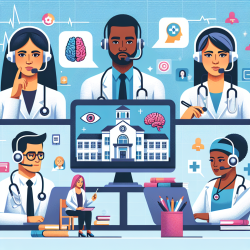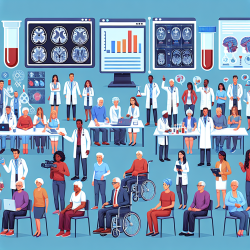The field of genetic diagnostics is rapidly evolving, with clinical whole genome sequencing (cWGS) emerging as a transformative tool. This approach offers a comprehensive analysis of the genome, providing insights into genetic disorders that are often elusive through traditional diagnostic methods. A recent study conducted at a dysmorphology clinic in Mexico highlights the potential of cWGS as a first-tier test, especially in resource-limited settings where access to specialized testing is constrained.
The Study: A Breakthrough in Genetic Diagnostics
The research, titled "Clinical whole genome sequencing as a first-tier test at a resource-limited dysmorphology clinic in Mexico," was a collaborative effort involving the Illumina iHope Program and local healthcare institutions. The study involved 60 probands with suspected genetic disorders who had not received definitive diagnoses through previous clinical evaluations. By employing cWGS, the researchers identified clinically significant genomic findings in 68.3% of the cases.
Key Findings and Implications for Practitioners
- High Diagnostic Yield: The study reported that cWGS led to a change in clinical management for nearly half of the diagnosed cases. This underscores the utility of cWGS in providing actionable insights that can alter patient care pathways.
- Diverse Genetic Variants: The findings included single nucleotide variants (SNVs), copy number variants (CNVs), and structural chromosomal anomalies. This diversity highlights cWGS's ability to detect a wide range of genetic alterations.
- Cost-Effectiveness: While traditional serial testing can be prohibitively expensive, cWGS offers a cost-effective alternative by consolidating multiple tests into one comprehensive analysis.
- Pediatric Focus: The study focused on pediatric patients, demonstrating that early genetic diagnosis can significantly impact developmental outcomes and quality of life.
The Role of Practitioners: Enhancing Skills and Research
For practitioners working in resource-limited settings, integrating cWGS into clinical practice can enhance diagnostic capabilities and improve patient outcomes. Here are some ways practitioners can leverage these findings:
- Adopt cWGS as a First-Tier Test: Embrace cWGS as an initial diagnostic tool for patients with suspected genetic disorders, particularly when traditional methods have failed to provide answers.
- Pursue Further Research: Engage in research collaborations to explore the broader applications of cWGS across different populations and settings. This can help refine diagnostic strategies and improve access to genomic medicine.
- Enhance Clinical Management: Utilize cWGS results to tailor clinical management plans, ensuring that interventions are informed by precise genetic information.
- Educate Patients and Families: Provide comprehensive genetic counseling based on cWGS findings, helping families understand their genetic risks and options for future planning.
The Future of Genomic Medicine
The success of this study paves the way for broader implementation of cWGS in resource-limited settings globally. As technology advances and costs decrease, the accessibility of genomic medicine will continue to expand, offering hope to countless patients with rare or undiagnosed genetic conditions.










